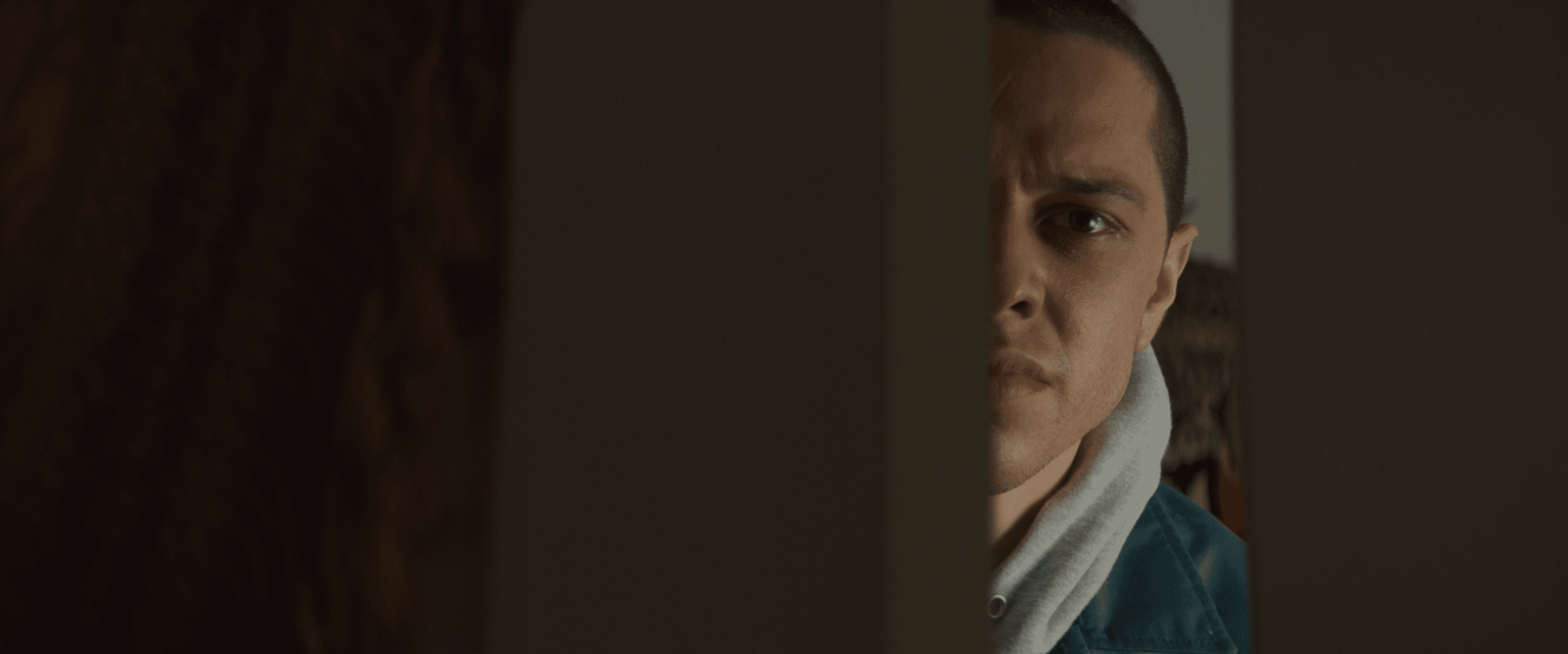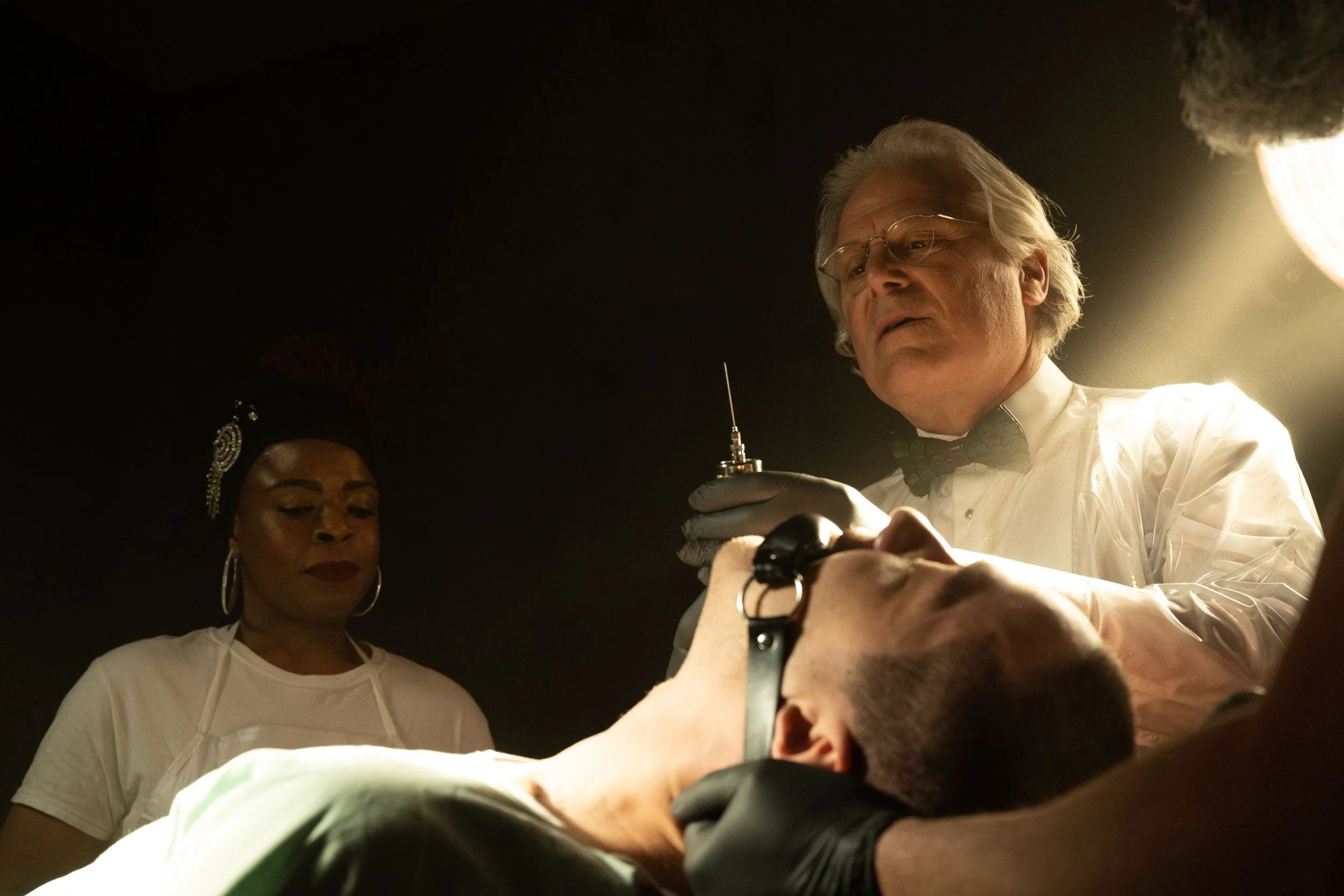'The Home' Review: Pete Davidson Headlines a Haunting, Uneven Tale of Trauma and Terror
Pete Davidson in 'The Home' Courtesy of Roadside Attractions
Pete Davidson brings unexpected vulnerability to James DeMonaco’s latest horror-thriller, an ambitious but uneven blend of supernatural scares and generational trauma.
James DeMonaco’s latest horror film, The Home, arrives with the eerie precision and social subtext that fans of The Purgefranchise have come to expect from the writer-director. This time, DeMonaco trades dystopian bloodbaths for a quieter, more psychological horror: the decay of the mind, the haunted spaces of the past, and the chilling secrets lurking in a retirement home. At its center is Max, played by Pete Davidson in a role that stretches beyond his usual comedic persona. The result is a deeply intriguing, sometimes effective, but ultimately inconsistent entry into the genre.
Max is a character adrift in grief, trauma, and self-destruction. Ever since his brother Luke’s suicide when they were kids, Max has carried a heavy burden of guilt, guilt that has calcified into chronic insomnia, artistic obsession, and a self-sabotaging lifestyle. Davidson, best known for his deadpan humor and stoner persona, plays Max with an emotional fragility that feels lived-in, if not always fully convincing. His eyes are hollow, his gait sluggish, his interactions tinged with ambivalence.
After yet another arrest for trespassing and graffiti tagging, Max is given an ultimatum: prison or a job. He chooses the latter and is assigned to work as the night superintendent at Green Meadow Retirement Home. From the moment he arrives, it’s clear something is off. DeMonaco and cinematographer Anastas N. Michos use soft-focus lenses and claustrophobic framing to establish a tone of dreamlike unease. The home’s grand facade conceals sterile, shadowy hallways and unexplained noises. This is not a place of rest but a liminal purgatory for both the living and the dead.
Pete Davidson in 'The Home' Courtesy of Roadside Attractions
The early scenes take their time establishing Max’s routine: mop floors, replace lightbulbs, ignore the ominous fourth floor. The mundane soon gives way to menace as Max begins seeing ghostly figures and hearing disembodied whispers. Yet, what sets The Home apart from conventional haunted-house fare is its layered treatment of trauma and displacement. As Max bonds with the residents, particularly the wary Norma (Mary Beth Peil) and the flamboyant Lou (John Glover), we begin to sense that the real horror might not be spectral but systemic.
There’s an air of Rosemary’s Baby paranoia as Max discovers a hidden network of surveillance and a disturbing pattern of disappearances. At the center of the mystery is Dr. Larch (Bruce Altman), a genial physician whose saccharine smile masks sinister intentions, and a pair of nurses (Mugga and co-writer Adam Cantor) who seem to be operating under their own occult agenda. These characters are cartoonish at times, veering into camp, but they also carry the thematic weight of generational betrayal.
The film flirts with allegory. Is Green Meadow a metaphor for institutionalized ageism? For generational hoarding of wealth and power? For the lingering ghost of familial neglect? DeMonaco never settles on a single idea, but he raises enough questions to keep the audience intellectually engaged even as the plot meanders. There’s a recurring motif of mirrors and reflection—both literal and figurative—that underscores Max’s inner turmoil. Is he merely witnessing horrors, or is he becoming complicit in them?
Bruce Altman and Pete Davidson in The Home Courtesy of Roadside Attractions
As the tension mounts, DeMonaco accelerates the pacing in the final third of the film, embracing the blood-and-guts thrills of traditional horror. There’s a sharp twist—more clever than shocking—that reframes much of what came before, and Davidson rises to the occasion with a burst of righteous fury. He transforms from a passive observer into an active participant, exorcising his demons both figurative and literal.
And yet, despite its promising setup and thematic ambition, The Home never quite coheres. The tone shifts unevenly from psychological drama to supernatural mystery to gory slasher. The script leans too heavily on exposition in places, bogging down its pacing. Some of the supporting performances fall flat, and the film’s climactic revelations don’t hit as hard as they should. You get the sense that DeMonaco is aiming for an A24-esque elevated horror experience, but the execution lands closer to Netflix mid-tier fare.
Pete Davidson in 'The Home' Courtesy of Roadside Attractions
Still, there’s something admirable about the attempt. The Home is more than a simple haunted-house flick. It’s a film about the invisible weight of grief, the blurred boundaries of memory, and the fear that no matter how far we run, the past will always find us. Davidson may not yet have the gravitas to carry a film like this entirely on his shoulders, but his effort is sincere and, at times, affecting.
POPULAR ON THE CINEMA GROUP
Ultimately, The Home is a haunted story about haunted people. It asks more questions than it answers, and its ambition outpaces its execution, but it lingers in the mind like the faint echo of a forgotten lullaby. DeMonaco may not have delivered a horror classic, but he’s given us a thoughtful, timely tale that deserves to be seen—and perhaps discussed, long after the lights come up.












![Sundance 2026 Recap [Part i]
Another Sundance in the books. Last one in Park City— premieres, portraits, and the people who made it.
More to come!
📸: @jonathanpmoustakas on @sonyalpha
#sundancefilmfestival #sundance2026 #thecinemagroup](https://images.squarespace-cdn.com/content/v1/65c1a54efb10480185732c60/1770112011067-GAUJ8WUARIG299C1YW9J/image-asset.jpeg)






